Malta Trip Photos: Second Installment
I will keep posting photos here that are not quite arty enough to be part of
the Photo.net album, but which have some documentary value that compensates. As a bonus, all photos on the blog are included at 1024x768 resolution, while those on Photo.net are a maximum of 800x600. People wanting the full 2048x1536 jpeg files my camera produces can request them by email or comment.
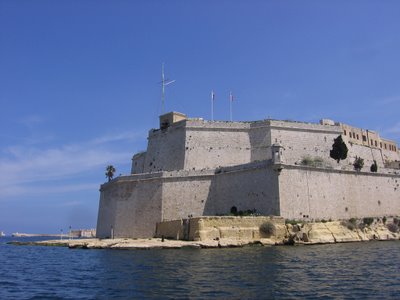 Valletta's status as a frequently invaded city is demonstrated by the elaborate fortifications that have been constructed around the harbour.
Valletta's status as a frequently invaded city is demonstrated by the elaborate fortifications that have been constructed around the harbour.
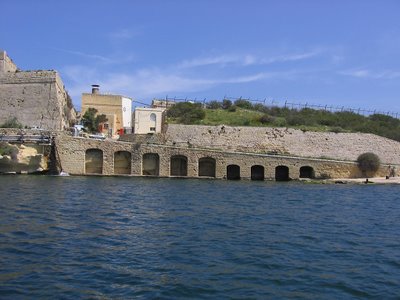 An important trans-shipment point between the countries circling the Mediterranean, Malta has extensive ship building and material transfer capabilities, both in Valletta Harbour and on the south side of the island near the main power plant.
An important trans-shipment point between the countries circling the Mediterranean, Malta has extensive ship building and material transfer capabilities, both in Valletta Harbour and on the south side of the island near the main power plant.
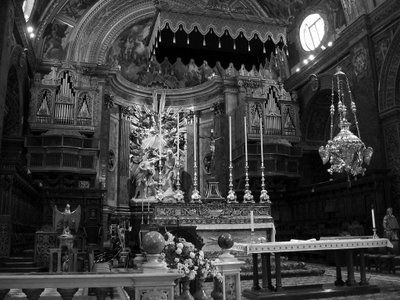 The interior of St. John's Co-Cathedral is both elaborate and unusual. The church is rectangular, with alcoves along the edges and a semi-cylindrical roof. Also, can anyone - perhaps Tony - enlighten me as to the meaning of a 'co' cathedral?
The interior of St. John's Co-Cathedral is both elaborate and unusual. The church is rectangular, with alcoves along the edges and a semi-cylindrical roof. Also, can anyone - perhaps Tony - enlighten me as to the meaning of a 'co' cathedral?
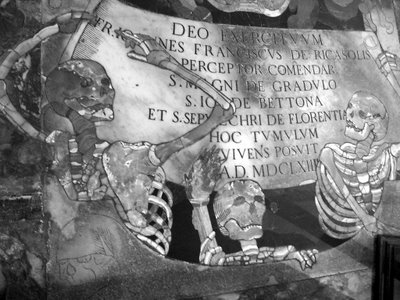 The emergence of skeletonized dead from tombs is an exceptionally common motif on the panels that make up the cathedral floor, each of which seems to be a grave marker.
The emergence of skeletonized dead from tombs is an exceptionally common motif on the panels that make up the cathedral floor, each of which seems to be a grave marker.
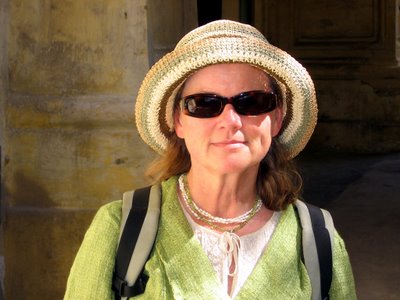 My mother under an archway in central Valletta.
My mother under an archway in central Valletta.
Posted by Milan at 7:17 PM

5 Comments
The photos at Photo.net are also available in a presentation, with captions.
Can anyone translate the Latin on that spooky slab?
Re: Co-Cathedral of St. John
The name, Co-Cathedral, refers to its later, dual role. In the 1820s, the Bishop of Malta, whose seat was at Mdina, was allowed to use St John’s as an alternative see, hence the name Co-Cathedral.
Here is my best guess as to the medieval Latin on the tombstone.
Deo excertiuum Fr. Io-nnes Franciscus de Ricasolis perceptor comendar
sacrum magni de gradulo sacrum io de bettona et sacrum sepulchri de
florentia hoc tumulum vivens posuit. AD MDCLXII.
The flocks of God have taken possession of Fr. John Francis of
Ricasolis, consuming his position of great holiness. The sacred
exclamations are thunderous and a sacred grave of flowers he has
placed this living tomb. In the year of our Lord 1662.
You can post it on your blog if you want.
The collection of my best photos from Malta are in this album.
Annotated versions are also coming up, in this presentation.
Post a Comment
« Home